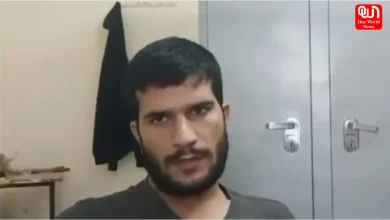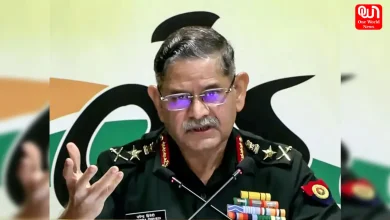Article 370: J&K Awaits Verdict: Hope, Concerns, & the Power of Constitutional Restoration
As Jammu and Kashmir anticipate the Supreme Court's verdict on Article 370, political leaders express hopes, concerns, and the power dynamics surrounding the constitutional restoration process.
Political Figures Reflect on Article 370’s Fate as Supreme Court Decision Looms Large in the Valley
As the nation awaited the Supreme Court’s verdict on the constitutional validity of the abrogation of Article 370, voices from Jammu and Kashmir reflected a spectrum of hopes and concerns. The decision, set to be delivered by a five-judge Constitution bench, led by Chief Justice of India DY Chandrachud, has been eagerly awaited since the bench reserved its verdict on September 5. Ahead of the judgment, political figures, including former Jammu and Kashmir Chief Minister Ghulam Nabi Azad, People’s Democratic Party (PDP) president Mehbooba Mufti, and National Conference leader Omar Abdullah, expressed their views on the matter.

Azad Stresses Court’s Role
Azad, leading the Democratic Progressive Azad Party (DPAP), has stressed the pivotal role of the Supreme Court in determining the fate of Article 370 and Article 35A. He asserts that only Parliament and the Supreme Court have the authority to reinstate these articles for the people of Jammu and Kashmir. Optimistic about the Supreme Court’s impartiality, Azad urges a decision favoring the residents, emphasizing their emotional connection to the repealed special provisions in 2019.
Read More-: SC To Hear Pleas Challenging Abrogation of Article 370
Given the substantial majority required for Parliament to reverse decisions from August 5, 2019, Azad sees the Supreme Court as the primary avenue for potential restoration. Tracing Article 35A’s historical roots, he notes Maharaja Hari Singh’s 1925 inception to safeguard land and jobs for Jammu and Kashmir residents. Azad emphasizes that these provisions seamlessly integrated into the country’s Constitution post-independence and endured untouched for a significant period. As the region navigates the aftermath of the 2019 changes, Azad places hope in the Supreme Court’s ability to deliver a decision aligned with the historical and emotional significance of Article 370 and Article 35A for the people of Jammu and Kashmir.
Abdullah: Peaceful Response
Omar Abdullah, a prominent figure in the National Conference and a member of the People’s Alliance for Gupkar Declaration (PAGD), assures a commitment to peace regardless of the Supreme Court’s Article 370 verdict. Abdullah emphasizes a peaceful struggle within the bounds of the law, expressing skepticism about the necessity of police interventions and advocating for democratic means to voice objections.
Former chief minister and PDP president Mehbooba Mufti underscores the Supreme Court’s pivotal role in safeguarding the country’s integrity and constitution. She categorizes the actions of August 5, 2019, as illegal and unconstitutional, urging the Supreme Court to provide a clear and decisive verdict on the matter, particularly concerning Article 370.
Read More-: Supreme Court Ponders Kashmir Article 370 Repeal: A Constitutional Conundrum
BJP’s Call: Depoliticize Verdict
Amidst varied perspectives on Article 370, the Bharatiya Janata Party (BJP) cautioned against politicizing the upcoming Supreme Court ruling. Ravinder Raina, the party’s Jammu and Kashmir unit chief, urged confidence in the judiciary’s transparency and advocated for a unified acceptance of the court’s decision. Stressing the need to transcend political considerations, Raina emphasized the significance of respecting the judiciary as a cornerstone of democratic values in the nation.
Ahead of the Supreme Court’s decision on Article 370, security measures in Jammu and Kashmir were intensified. Inspector General of Police (IGP), Kashmir Zone V K Birdi, underscored the commitment to peace, revealing that substantial security arrangements had been put in place to ensure stability in the region during this crucial period.
Verdict Anticipation: Complex Dynamics
The anticipation and reflections leading up to the verdict highlighted the complex dynamics surrounding Article 370. While political leaders expressed their hopes and concerns, there was a collective call for respecting the judicial process and maintaining peace in the region. The outcome of the Supreme Court’s decision would undoubtedly shape the future trajectory of Jammu and Kashmir, influencing its constitutional status and the sentiments of its people.
Like this post?
Register at One World News to never miss out on videos, celeb interviews, and best reads.








